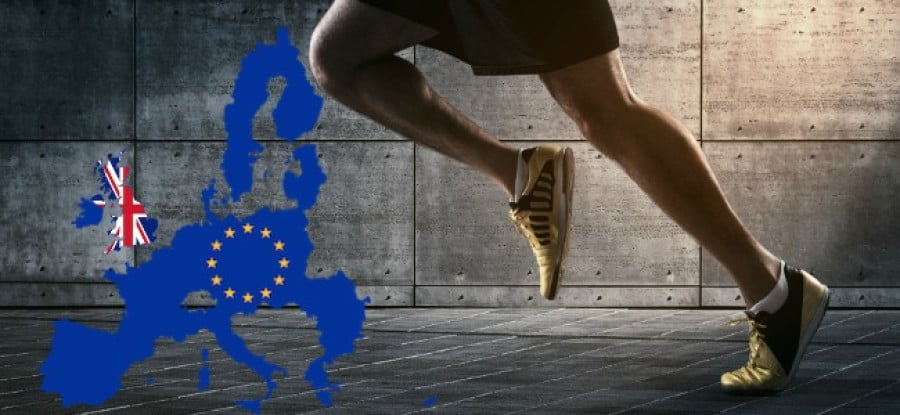Key points for migrant athletes to consider should the UK vote to leave the EU

European Union (EU) nationals currently enjoy freedom of movement rights that allow EU workers, including athletes and sportspersons, an automatic right to work in any other EU member state they choose.
If the UK votes to leave the EU on 23 June 2016 (“Brexit”), it is uncertain how these rights will be affected. This article explores a number of potential outcomes, with the aim of assisting EU athletes in understanding the landscape and developing strategies to cope with the uncertainty.
Current rights
The Treaty on the Functioning of the European Union (TFEU) provides that workers shall have freedom of movement between member states and cannot be discriminated against by member states in favour of a state’s own citizens.1 “Worker” is not defined, but case law has interpreted the phrase to apply to any one who is economically active and subjected to some control by the employer.2 It also incorporates job-seekers who travel to another member state to look for work for up to 6 months.3Persons who work in a self-employed capacity are given equivalent protection.4
A right to live in the “host” member state indefinitely is acquired after a 5-year period, subject to certain conditions, and workers have a right to be accompanied by their family members.5
These rights apply to EU member states, as well as Norway, Liechtenstein and Iceland, who are signatories to the Agreement on the European Economic Area (EEA).
Switzerland opted out of the EEA Agreement, but has a bilateral free-movement agreement with the EU which replicates all free movement provisions.6
Key points for migrant athletes should there be a “Brexit”
There will be a lengthy process before any changes take effect
If Britain does vote to leave the EU, EEA citizens will not be immediately asked to leave the UK, and UK citizens will not have to immediately return home. This is because, under the Treaty on European Union, the UK government is required to give formal notice of exit to the other member states. This triggers a two year negotiated exit process,7 during which time freedom of movement right will operate as normal in line with all other EU law.
Negotiations can be extended beyond two years if additional time is needed provided the UK and all EU member states agree.8 Should an extension occur, current freedom of movement rights would remain fully intact during the extension period.
The negotiation period allows the UK and EU member states to try to reach an agreement on whether, and if so how, the rights and obligations that previously existed between the UK other member states under EU law will continue after a Brexit. This not only includes freedom of movement rights, but many others too such as trade and policing. No one knows what the terms of any such agreement will look like or even whether will be reached. If no agreement can be reached, and no further extensions are agreed, then at that point the current rights and obligations between the UK and EU would end. The UK and the individual EU member states would be free at that point to decide, if they wished, to withdraw free movement rights from one another’s citizens.
There are good reasons to believe that a deal would be reached between the UK and the EU on immigration (alongside all other issues). Although its final form can only be speculated upon, the most likely scenarios are as follows.
Freedom of movement rights may stay intact
It is possible that the UK and EU will ultimately agree that freedom of movement survives largely or wholly unchanged. As already mentioned, Norway, Liechtenstein and Iceland, are outside of the European Union but have agreed, within the EEA agreement, to freedom of movement as well as other reciprocal obligations that mirror EU law in many, but not all, areas.
Some suggest9 that the UK may end up with a ”Norway-type” deal that provides access to the free market. This aspiration highlights the importance of the exit negotiations – only a deal with the EU itself can secure this goal, and a breakdown of negotiations would force the UK to negotiate with each member state separately and necessarily lose access to the free market. These suggestions also highlight the fact that such a deal to secure access to the free market could well involve, as in Norway’s case, accepting freedom of movement in the form that it currently exists.
The UK government will in any event be under pressure to negotiate an agreement that will allow UK citizens to travel freely in Europe (at the very least for short term business or holiday trips). This will be an additional pressure that is likely to work in favour of free movement reaching the final agreement. Reciprocity is expected in any negotiation; whatever privileges the UK wishes to obtain for its citizens travelling through Europe will be expected in relation to those coming from EU member states, and not just the relatively wealthier ones. If a Romanian citizen is to be required to obtain a visa before travelling to the UK then a German will also need one; and likewise a UK citizen will need one to go to Paris. The reasons for this are discussed below.
The final arrangements are unlikely to disadvantage citizens from any particular nation
The risk of an athlete who is from a relatively less wealthy member state being asked to leave the UK (or to have their entry subject to controls) is likely to be no different to the risk that will face a national of a relatively wealthier member state.
The exit mechanism set out in Article 50 requires the European Council (i.e. the heads of states of all EU members, excluding the UK) to negotiate the new arrangements with the UK and for them to be approved by a qualified majority.10 Whilst theoretically some of the poorer countries may be outvoted, the European Council could not in the first place accept any deal that discriminates against its poorer member states as this would infringe the Charter of Fundamental Rights of the European Union, which forbids discrimination on the grounds of nationality.11
Athletes currently working in another member state may be entitled to remain
The final deal is very likely to contain separate rights for those individuals who are, at that time, working in another member state, even if free movement generally is to end.
To continue reading or watching login or register here
Already a member? Sign in
Get access to all of the expert analysis and commentary at LawInSport including articles, webinars, conference videos and podcast transcripts. Find out more here.
- Tags: Agreement on the European Economic Area | Brexit | Employment Law | EU Law | European Economic Area (EEA) | FIFA | Football | Governance | Immigration | Premier League | Regulation | Treaty on the Functioning of the European Union (TFEU) | United Kingdom (UK)
Related Articles
- What has the Marcos Rojo case taught us about third party investment in footballers?
- Gutierrez v Newcastle Utd disability discrimination case: the wider implications for sport
- The funding and employment status of elite athletes – A comparison of the UK, USA and Germany
- 11 crucial concepts about U.S. immigration for international athletes
Written by
Duncan Bain
Duncan Bain is a Senior Associate in the Oxford office of Bower & Bailey Solicitors. He qualified as a barrister in 2001 and cross-qualified a solicitor in 2008. He practices immigration, discrimination and employment law.

 Global Summit 2024
Global Summit 2024